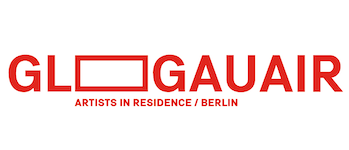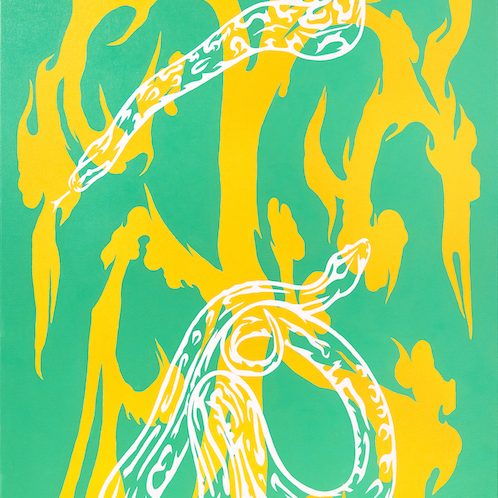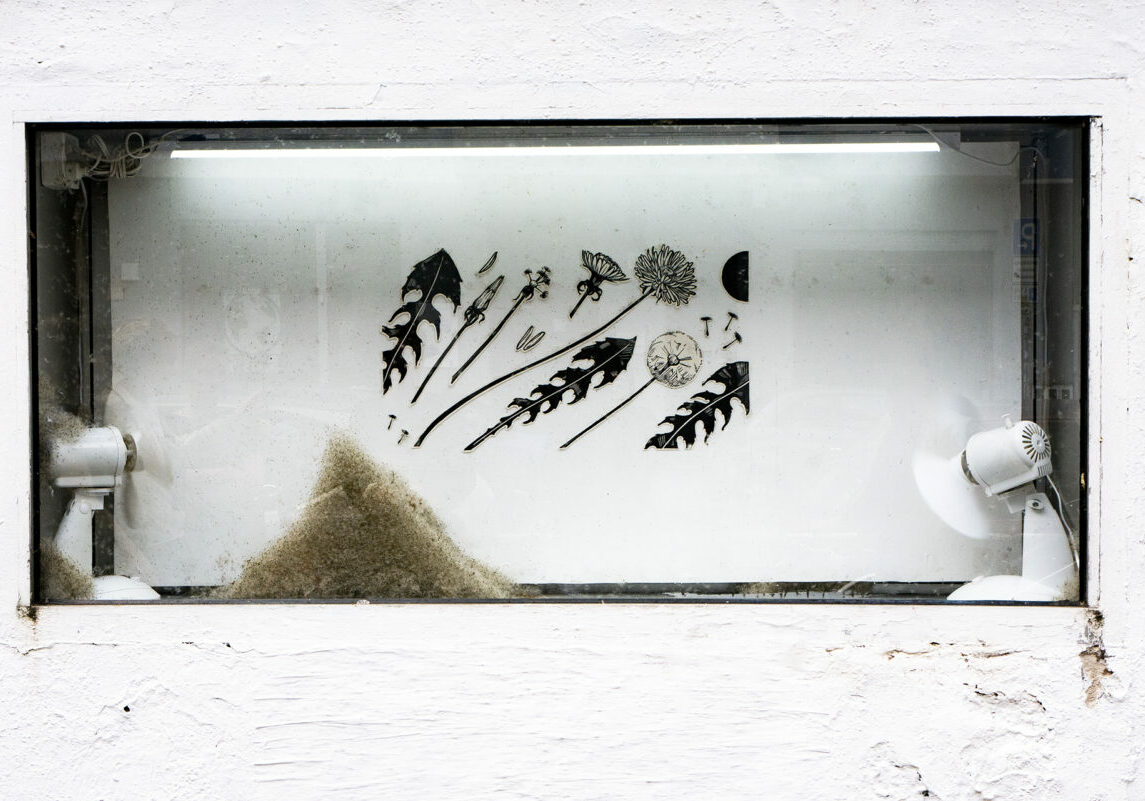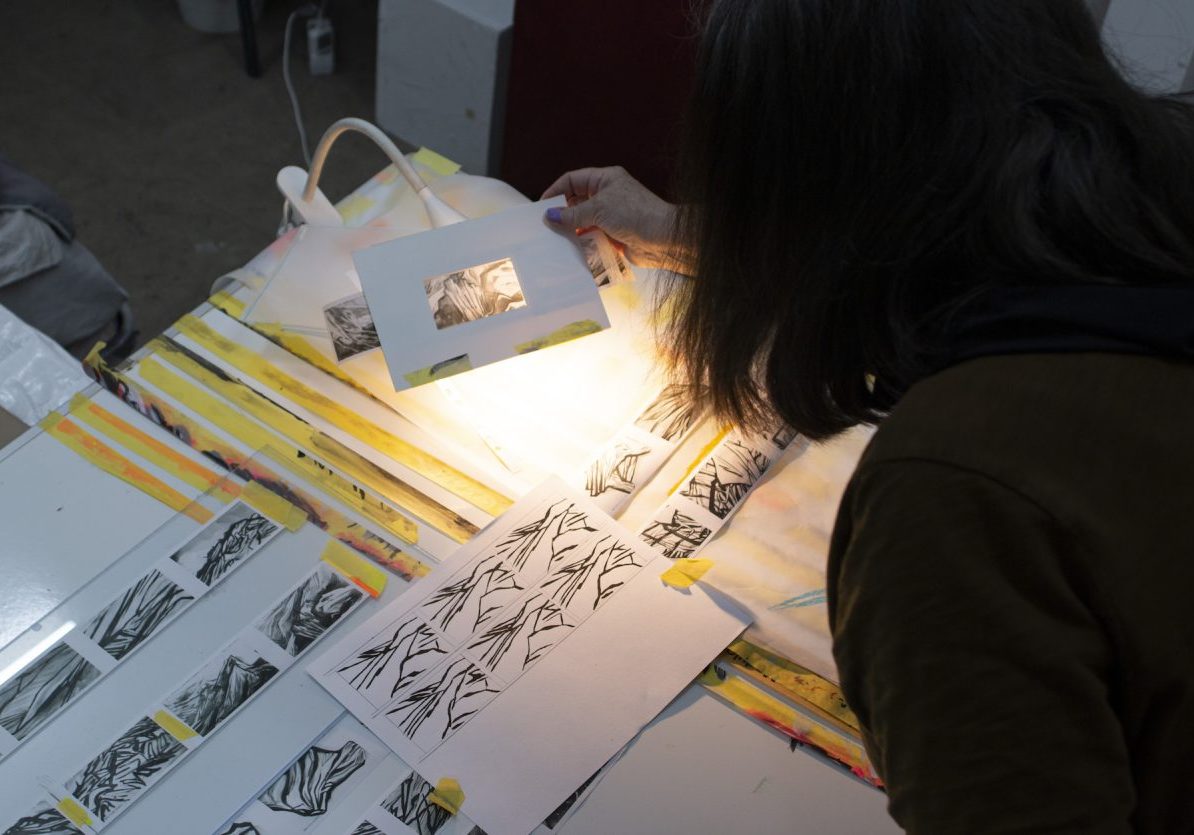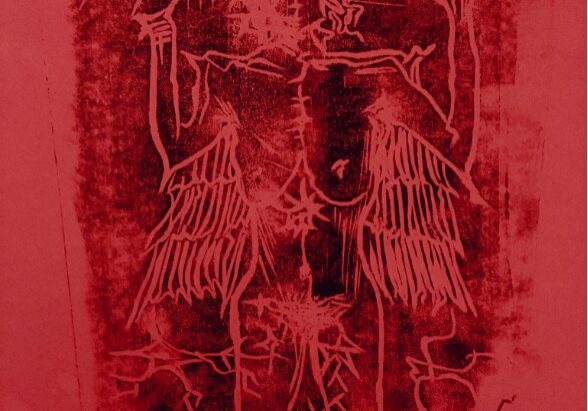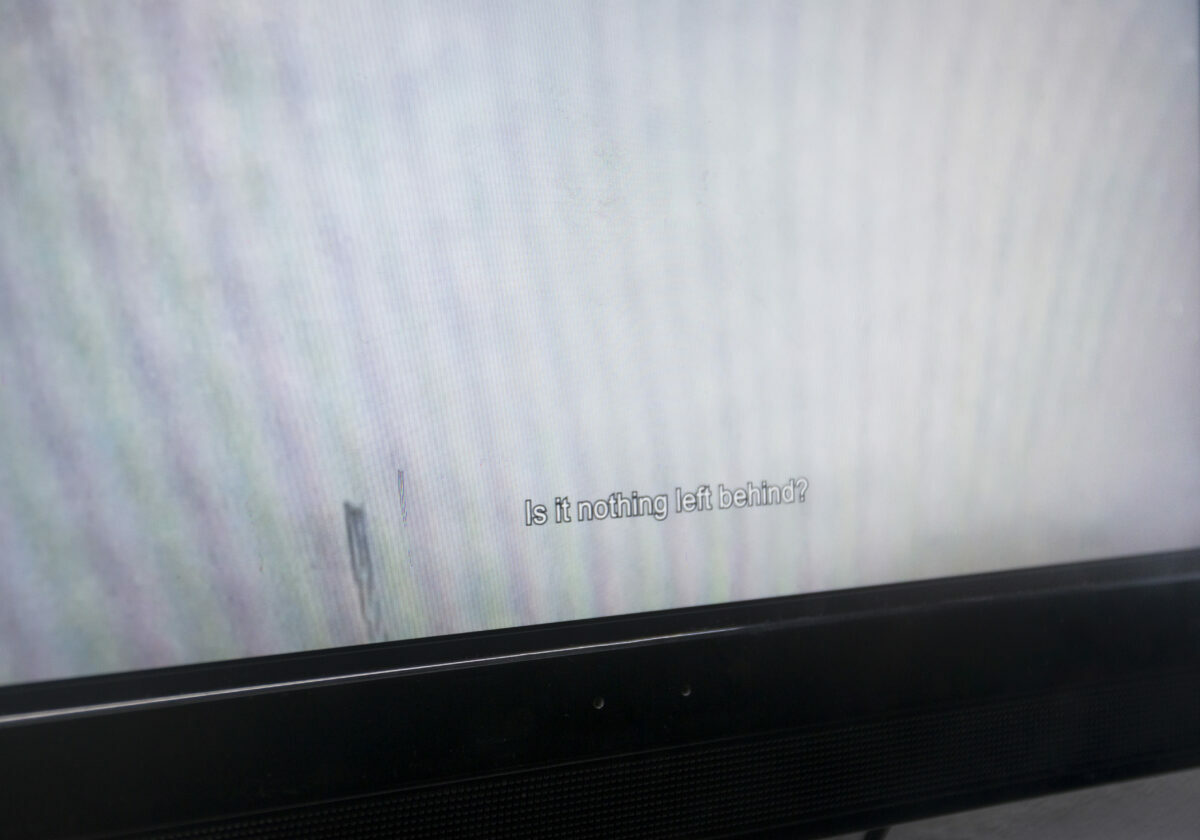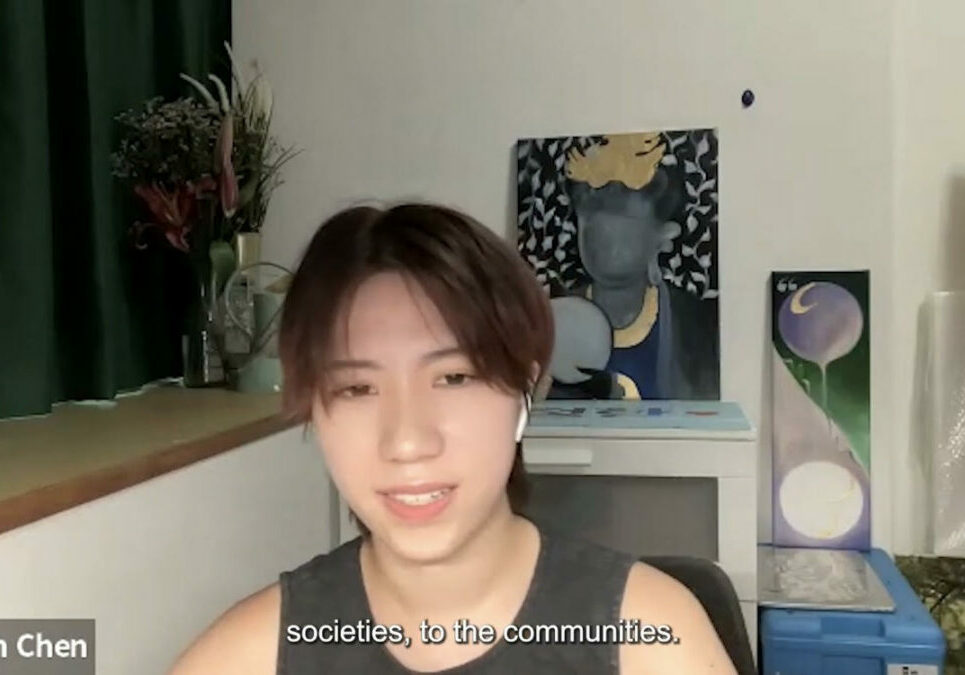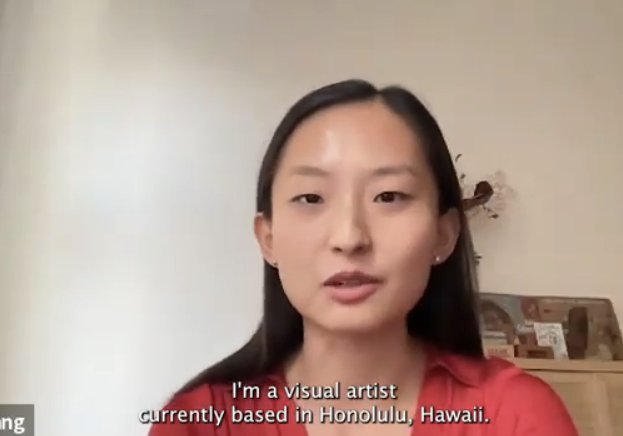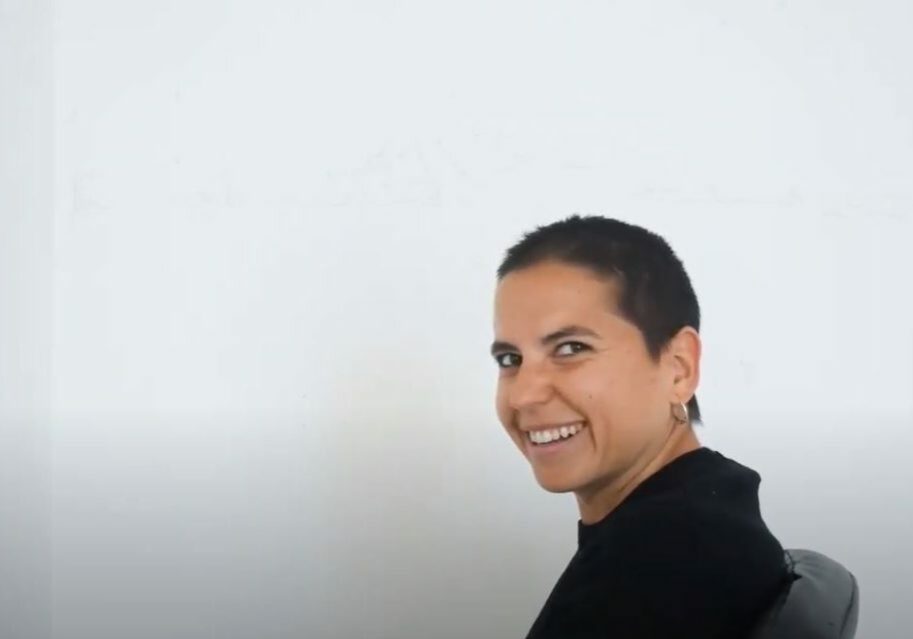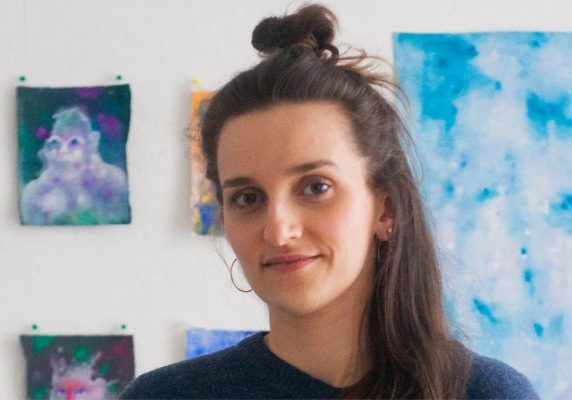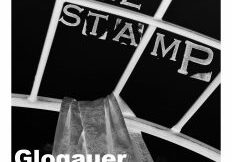Meet the Artist // Hu Zeqian
Introducing Hu Zeqian, visual artist based in Washington D.C, devoted to researching more possibilities for images in contemporary painting experiments, exploring the intense game between nature and humanity.
In his project Emissary, he explores the “new world” as the exploration of the process of creation when personal desires and natural laws struggle to get along. He transcribes physical photographic images that contain historical culture as line patterns on a false natural landscape background with industrial colors. His paintings visually exist somewhere between digital art and actual painting, defying categorization within a specific art style.
How would you describe your practice as an artist?
My name is Hu Ziqian. Well, this is my full name. I’m originally from China, but now I’m living in Washington, D.C. as an artist. My practice is mainly focused on acrylic painting, cyanotypes, and digital art. That’s what I’m doing at the moment.
What inspires your work?
What inspires me the most is looking at all kinds of images online, and making connections with them, from vintage pornographic pictures to classical iconographic, all of those things that I can find online. So my references, as I mentioned, can be anything, any object that I can find from the internet, and photos I take when I’m walking around in the city. On the other hand, I’m really obsessed with poisonous flowers and plants, and how they connect emotionally to the sculptures in cemeteries.
Anything that can inspire me, I’ll use it to transform into the main image of my paintings.
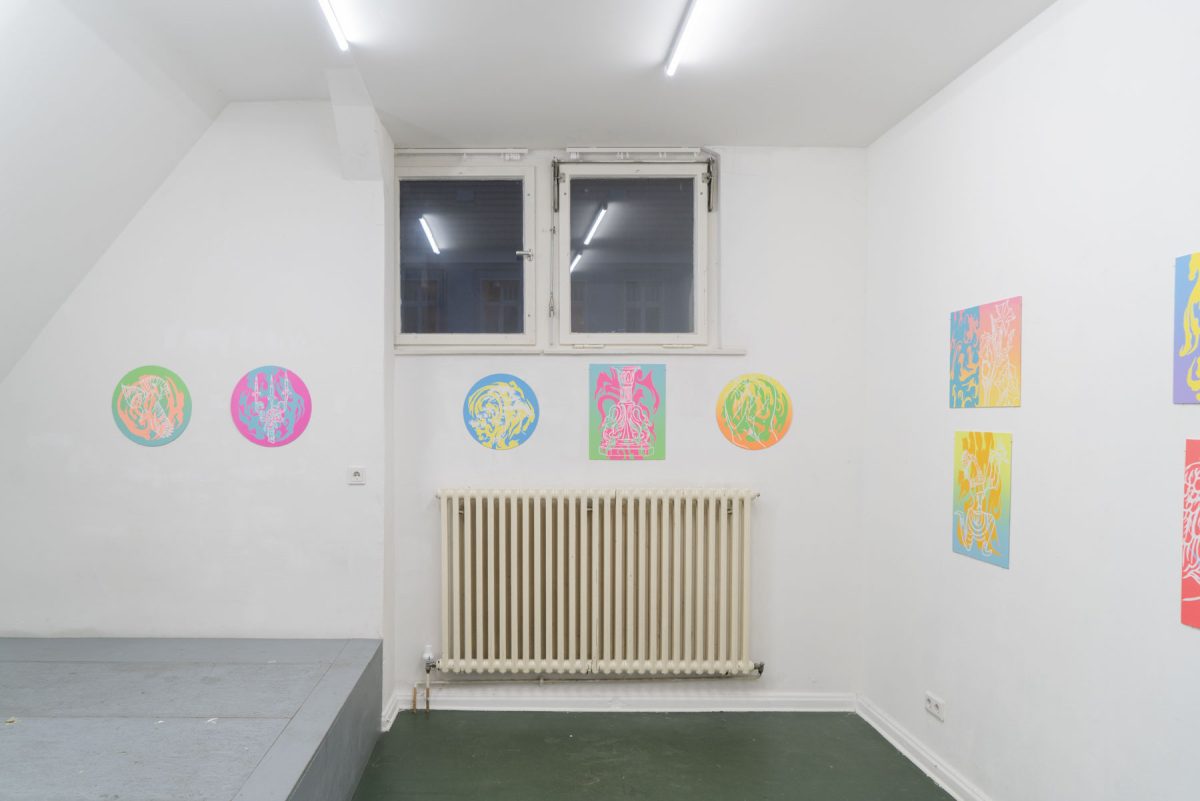
And how did your artistic journey begin?
I started painting when I was around eight years old. As I started getting older, I learned how to paint. After going to college and graduating in fine arts, I found out that I wanted to be an artist. I guess it was about following a strong feeling.
Basically, when I was in college, I was thinking about doing something else like working for a gallery, or for another artist in their studio, which I did at the beginning. After that, I felt I needed to do something for me, for myself, and the only skill that I have is painting. I tried developing my skills again, and I started to paint. It felt very authentic and true for me. I don’t know how to say it, but I pretty much enjoy being an artist.
Do you have any anecdote or a story from your artistic journey that had an impact on you?
Actually, being a real artist, it’s a big challenge for me, and being an artist itself, impacts me the whole time. Having thoughts as, how can you imagine that or that? Or how is it being an artist, and what is art? What is good art?These questions impact me the whole time.
It’s not always great, though. A lot of the time, being an artist, especially a painter, means long periods of isolation. You’re in the studio, focusing on your project, and there’s this constant need to be in a creative zone. But I find that this solitude is also crucial—it gives me the space to figure things out, to decide what I want to create, and to dive deep into the concepts that drive my work
How do you see yourself in the contemporary art world, in the contemporary art market, and how do you see your work fit there?
I see myself as a painter, but I don’t focus on big social issues like some artists do. Artists can’t really solve these problems, so I prefer to focus on real-life things, like feelings about life and death, and the everyday struggles we all go through. I think my art can help people understand these things better.
About the art market, I find it interesting, but it’s also a bit confusing. It feels like a game, but I’m not sure how to play it. These days, anyone can be an artist—they can paint, take photos, or do other creative things.
Being an artist as a hobby is easy, but if you want to be a professional, you need to think about it like a business. You have to take it seriously and think of yourself as a businessperson.

Is the city of Berlin influencing your production?
This is my first time in Berlin, and I’ve heard that it’s one of the major art cities in the world. I’m really excited about the atmosphere here—the architecture, the creative energy, and all the different vibes you can find. It’s a great place for an artist to be.
I have to say that the winter weather is a bit depressing, but I also appreciate the opportunities I’ve had through this artist residency. You get to talk with other talented artists and share amazing ideas. It’s really helpful and exciting for me, and I’ve been able to get a lot of valuable insights from these interactions.
How is this residency and living with other artists having an influence on your production?
It’s going pretty well. I just finished something in the last couple of days that I’m quite happy with. The great thing about living in a residency with other artists is that there’s a lot of collaboration and feedback. For example, we talked about why I used a specific image and why I chose certain colors. They gave me valuable suggestions, like maybe trying different colors for the figures. These discussions made me think more seriously about my creative choices.
Another thing that I love about this residency is that every artist here is really different. There’s a filmmaker, someone who writes books about the body, and four other painters, all working on quite different concepts. Talking to them has been really inspiring. We each bring unique perspectives, which has a positive influence on my work.
When I applied to GlogauAIR, I was just starting my career as an artist. I felt that being in an artist residency would be an important part of my journey. GlogauAIR stood out because of its history and its location in downtown Berlin, which has a lot of art resources. The more I learned about it, the more I felt it would be a fantastic opportunity for me.
And what are your plans after the residency?
I would like to, personally, I would, yeah, go back to Toronto with my parents for like two months, and then go back to D.C. to continue doing my work. But at the same time, I was thinking of applying for more artist residencies.
Maybe not in Berlin, but in the United States maybe. And I’ll just continue doing my project and then using a lot of the references I have right now, like from Berlin, and transfer there my work.

